This post contains affiliate links from which I may receive a small commission, at no extra cost to you. In no way does this affect my opinion or the information I provide on the product. Please read my disclaimer for more info.
Who doesn’t enjoy a nice refreshing fizzy drink after a long hot day in the sun? Or just any day, for that matter?
And isn’t it wonderful if you can enjoy all the sweetness without actually ingesting any sugar or calories? Yes, I’m talking about diet soda! Well, it might not be that great for your health.
Studies have shown that diet soda isn’t necessarily better than regular soda in terms of weight or health.
Is diet soda bad for you? Here are the reasons why you might want to stick to your regular can of coke…or even better, your glass of water.
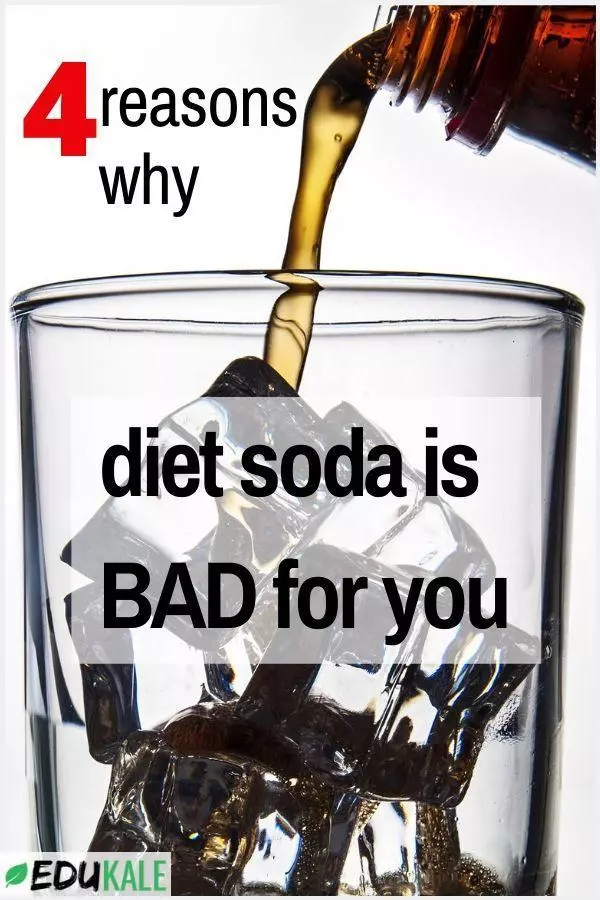
What is diet soda?
Diet soda/pop is a fizzy beverage that tastes pretty similar to regular soda but doesn’t contain any sugar. Artificial sweeteners, such as aspartame or saccharine, are used to mimic the sweet taste. Since their sweetening power is much higher than glucose, you’re able to enjoy a sugary drink with no calories.
Almost every popular sugary beverage has a “diet” or “light” version which is marketed to be the healthy option. But is it really?
4 reasons why diet soda is bad for you
1. Diet soda can make you gain weight.
Studies compared people who regularly consumed diet pop to those who didn’t. They showed a dose-response relationship between drinking artificially sweetened beverages and gaining weight.
This means that the more diet soda people drank, the more weight they gained. This doesn’t establish causality but does question whether diet pop really prevents weight-gain, which is the main reason why people drink it.
Another study showed that both children who drank regular soda and those who preferred the diet version had an increased percentage of body fat and BMI. This means that substituting regular pop to diet pop for weight purposes isn’t a good solution.
A reason for this may be that when people drink diet pop, they may see it as a “free pass” to indulge more in high-calorie foods. It’s easy to go for the extra dessert portion when you think you’re saving yourself a few hundred calories! Indeed, a study found that among overweight individuals, those who drank diet soda ate more calories than those who preferred regular pop.

2. Diet soda is linked to type II diabetes.
A lot of people equate drinking diet soda to drinking water because they both have zero calories. However, calories don’t mean everything. Drinking diet pop can raise some health issues.
Even if it’s sugar-free, drinking diet soda is associated with type II diabetes. Studies show that people who consumed it daily had a 36% greater risk of metabolic syndrome and a 67% greater risk of type II diabetes compared to people who didn’t drink any.
Usually, when you consume sugar, your body secretes insulin in order to get all of that sugar into your cells.
When you drink diet pop, your taste receptors sense that you are ingesting something sugary and your body secretes a little bit of insulin in prevision. However, there isn’t actually any sugar to go into your cells, so your insulin was secreted for nothing. If this happens often, your body could start to become insulin-resistant.
Studies are still divided on this topic, however, and it is dependent on the type of artificial sweetener. This one, for example, reveals that consuming artificially sweetened beverages has no effect on insulin sensitivity. This study was sponsored by The Coca Cola company though, so that should be kept in mind.
3. Diet soda is bad for your gut health.
By now you are all probably familiar with the importance of your microbiome, the good bacteria living in your body. It is crucial to your health and deeply impacts your immune system, your digestion, your brain, your heart, and even your weight.
However, studies show that consuming artificial sweeteners found in diet soda alters the gut microbiome. They cause a difference in the composition of the microbiome and modify its functions. Studies show this could be an explanation as to why diet pop causes weight gain and insulin resistance, as mentioned previously.
4. Diet soda messes with your brain.
Your reward system plays a role in modulating how much you eat.
A study showed that people who drank diet soda had different brain activation to sweet taste than people who didn’t. The diet soda drinkers’ brains were more rewarded for tasting sweet molecules than non-drinkers, stimulating consumption.
Conversely, the part of the brain involved in feedback was less stimulated in diet pop drinkers. This region usually tells people to stop consuming sugar after they’ve had enough. But it being under-stimulated means that diet soda drinkers had to drink more in order to feel as satisfied as others.
In addition, another study demonstrated that artificial sweeteners impacted the neural mechanisms involved in processing reward. The brain reward system is much more complex than this of course, but it shows how consuming diet pop regularly could lead to alterations in your reward system, causing you to eat more sugar to satisfy your cravings.
Should you have diet soda or regular soda?
The answer is, it depends.

If you have type I diabetes, the diet version is safer because you won’t be raising your blood sugar and requiring any insulin. If you prefer the taste of diet soda, then you can have it instead of regular pop. But you should know that it isn’t any healthier, and that is won’t prevent weight gain.
Both drinks have their cons. Regular soda will spike your blood sugar levels and give you way too many calories. Diet pop isn’t full of sugar, but does contain potentially harmful artificial sweeteners. Both contain no nutritional value and bad chemicals. So, choose your poison, I guess.
Of course, the best thing to do would be to drink sparkling water infused with fruit for a healthy but still delicious alternative.
In conclusion, is diet soda bad for you?
Yes, it is.
But so is regular soda.
The difference is that people know that regular pop is bad, while they are often less wary of the diet version. It’s easier to indulge when you’re not getting any calories in.
This shows that people focus on what matters less, calories, instead of focusing on their health. It’s also important to remember that heavy soda drinkers, be it diet or regular, are often unhealthy eaters and pretty inactive, which could bias the study results linking pop to health problems.
So in conclusion, a drink of any type of soda is fine if it’s very occasional. On a day-to-day basis, water is the only good option!
-Lucie
If you’re interested in nutrition, its impact on our health, and the science behind it, you should definitely read How Not to Die. In this book, Doctor Michael Greger, founder of Nutrition Facts, examines the top causes of death in America and explains how your diet can prevent— and in some cases even reverse— them. His advice is all backed by science and he writes in a very clear and entertaining way. This book isn’t a list of what you already know. It will teach you the keys to living a long healthy life, in a simple and practical way, and without spending fortunes on supplements and pills!
PLUS if you want to take it a step further, you can check out the How Not to Die Cookbook to implement the advice easily!

Welcome!
I'm Lucie, the nutritionist behind Edukale! If you'd like to learn more about me, click HERE !
Read More!
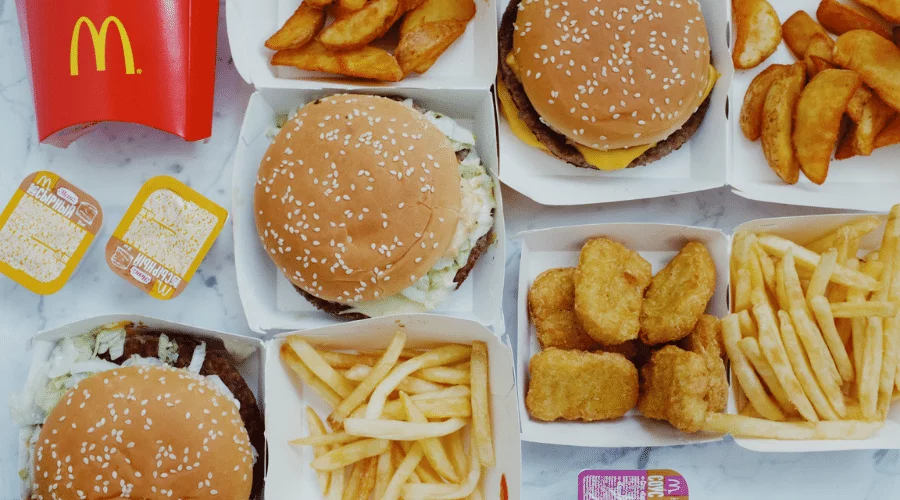
The truth about processed foods
You’ve probably heard that it’s best to reduce your intake of “processed foods” for healthy eating, and increase your intake of whole foods for optimal health.

The Best Foods to Fight Fatigue
Do you feel like you’re always tired and that you need multiple coffees to get you through the day?

how to find the balance between healthy eating and dieting
It can be hard to find the right balance between healthy eating and dieting without becoming obsessed with food.
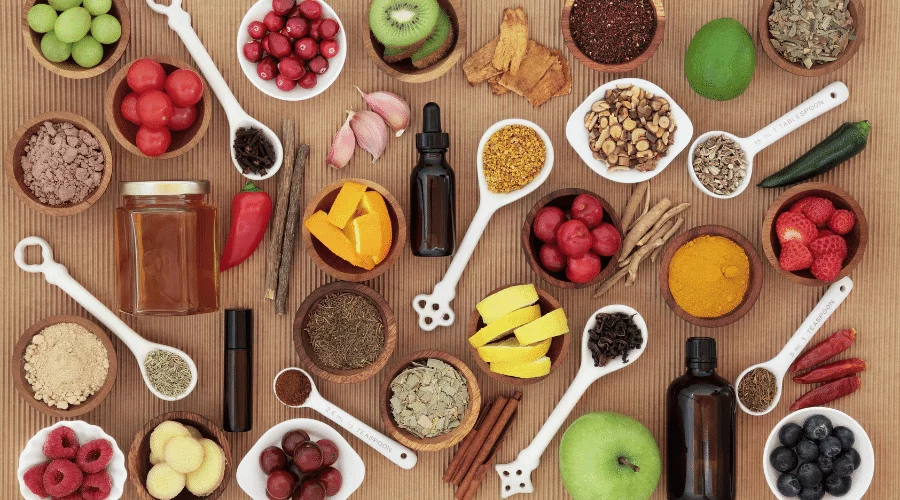
Can you use food as medicine?
“Let food be thy medicine, and let medicine be thy food.” We’re all familiar with this quote attributed to Hippocrates, and we all know the huge impact our food choices have on our health.

How to finally stop overeating for good!
Overeating means eating past your body’s actual needs, and it can be rather uncomfortable.
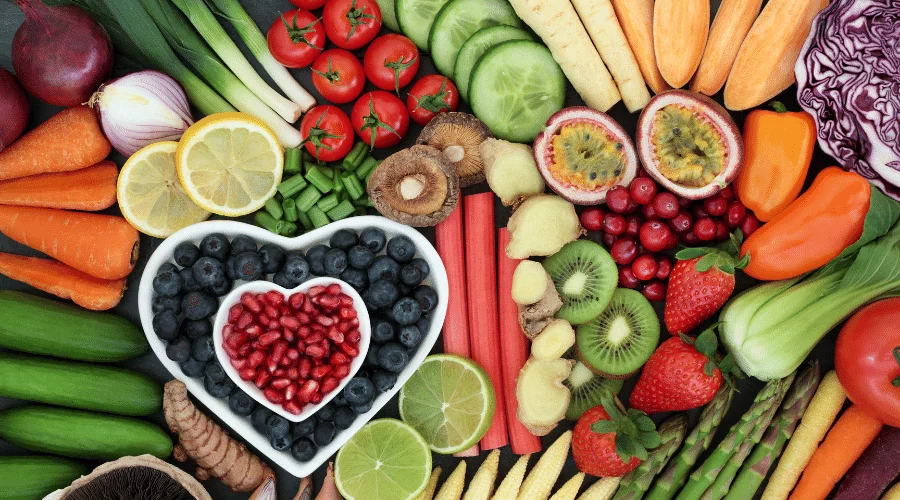
The anti-inflammatory diet: get rid of inflammation
You’ve certainly heard about the anti-inflammatory diet before and the benefits it could have on your body.
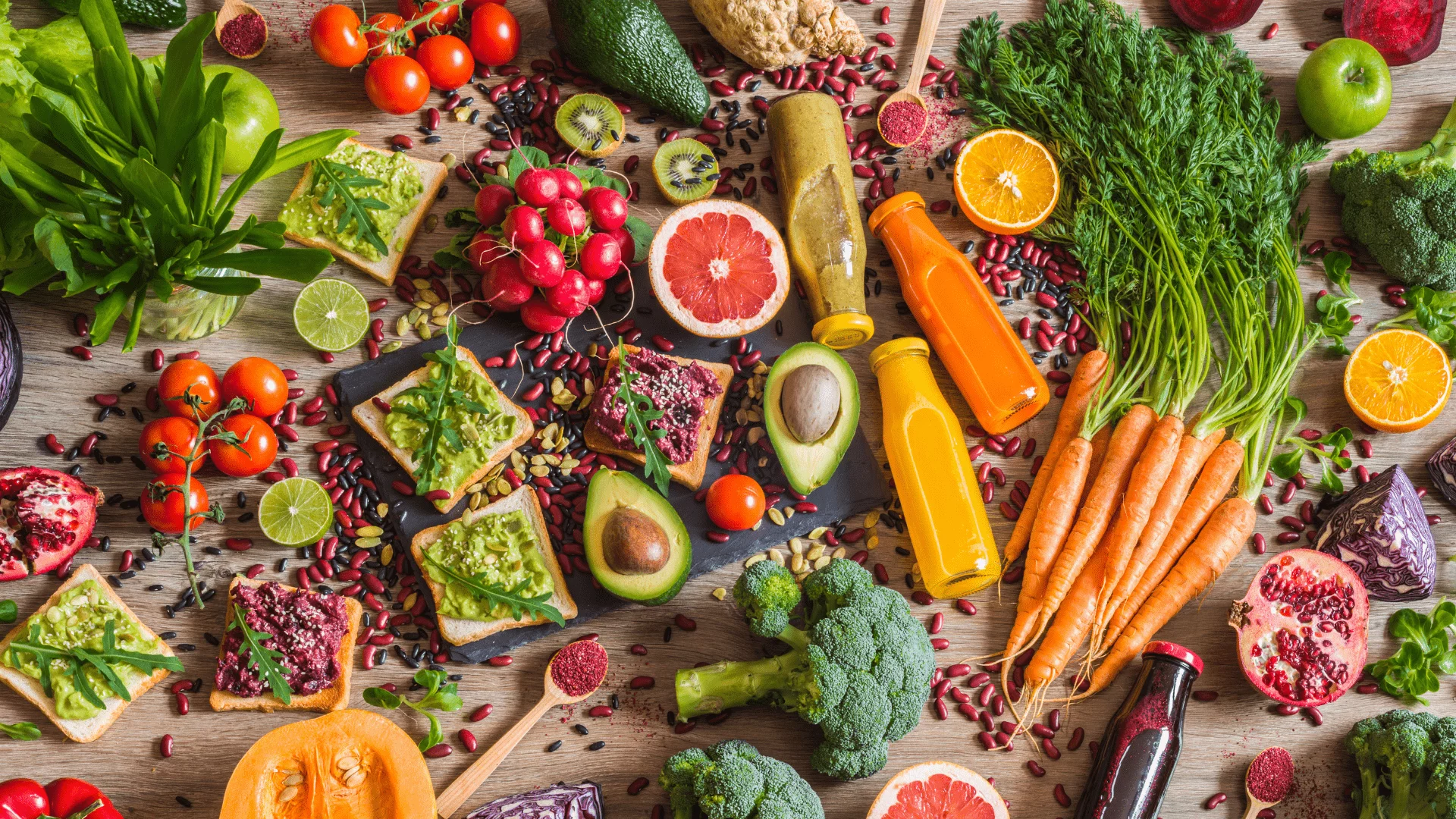
The complete beginner’s guide to veganism
Even though you can absolutely be healthy on a diet that includes animal products, the scientific consensus shows that increasing your consumption of plant-based foods is what is best for health.

Physical vs emotional hunger—learn the difference
You may be aware that physical hunger is not the only type of hunger that exists. There are actually two main types of hunger: physical hunger and emotional hunger



Comments are closed.